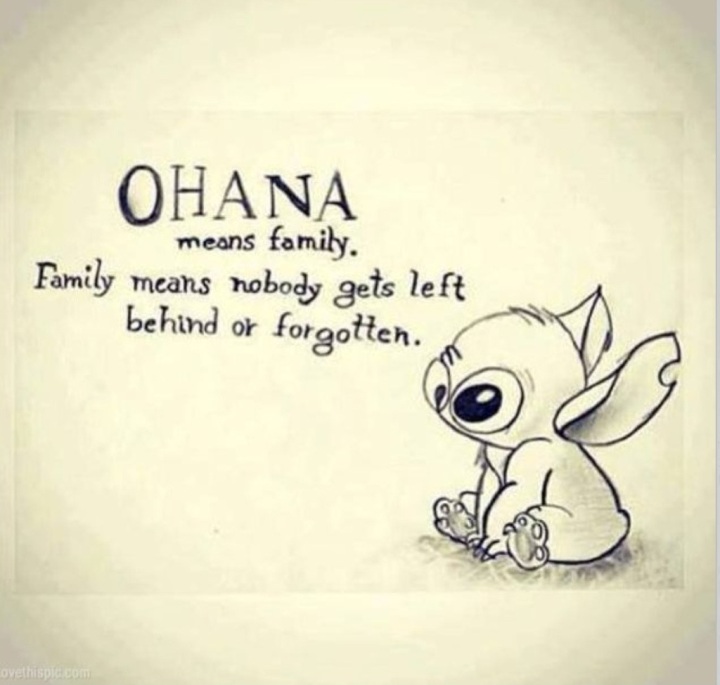I work in IT support, and I have for longer than I’d like to admit. I’m on the very early edge of millennial. I was born a few years after the generation “started”. My older brother was on the transition between millennial and gen X and my oldest sibling was very gen X. My parents were part of the prior two generations (boomers etc), and I tend to work along side and for all sorts of people from all of these generations.
Earlier than gen X, eg boomers and older, are usually technology adverse, they don’t like change. I find many are kind of “set in their ways”. Of course there are exceptions to the rule, but they seem to be fairly rare. They like to do things using methods that are tried and true, but often reluctantly agree to use computers instead of paper because that’s what others are doing. Even so, they’re fairly adverse to updates and changes that modify how things get done. They have money, and you can’t have any of it. Often, they have little understanding of the problems faced with current generations, likely because they did not have the same challenges, and despite their stories of “back in my day” about how hard things were for them, they actually had it rather easy in terms of cashflow and buying power. They made less, sure, but when they were able to buy a mid sized, single family, fully detached home for the same dollar value as a “cheap” car costs now, their money went much farther (around $20k).
Gen X is kind of lost. What I mean is that they don’t really have too many traits that stand out. As far as I can see, they’re hyper independent, mostly riding the coat tails of the bombers economically, so, while they didn’t have it quite as easy as boomers did (despite what boomers might think/say), it also wasn’t significantly harder for them. They were mostly able to follow a fairly typical life path, get an education (HS/college/uni), get a career, buy a house, have a family (if desired). Politically, from what I’ve seen, gen X is the most diverse group and they’re usually following along with whatever is regionally popular. Not because it’s popular, but because they’re surrounded by it. From what I’ve seen this group is the most adaptable to their neighboring community, mostly just trying to fit in and not be bothered. Right now they’re a large part of working professionals.
Millennials are usually post college, debt laden individuals that are just tired. They were trying to kick-start their lives in some of the craziest times imaginable. Many early millennials who were able to quickly move through the education system, and immediately get into a career and the housing market follow more along the lines of gen X. If you were held back for any reason or you were caught up in a situation that held you back, you shared fate with many of the later millennials. The majority of millennials were caught up in every economic crisis short of a complete collapse of the money system during the years that they should have been starting their careers. Homes rose in price swiftly and vehicles didn’t lag far behind. Driven by sheer determination to succeed, many accrued significant debt that they just want to balance out. This group is the most technically malleable and can adapt to most technology changes in the shortest time. Growing up on landlines and home PC’s/consoles/electronics that all significantly changed their designs, capabilities and interfaces every 4-5 years. Many seem to be problem solvers and want to be helpful/useful. Many have, and some still do, hold onto the ideal that their contribution should be impactful. Most just want to be acknowledged and told they’re doing well, while making enough to pay their bills and debts. For many the dream of owning a home is dying or dead. Renters, car owners, debt holders. They’re growing rather jaded about it as they get older.
Gen Z have their own language. Millennials did too but mostly in cultural memes, with the zoomers, it’s less cultural reference and more of a short hand derived from cultural references. Things that on their own, don’t make any sense and are not even full sentences in any way shape or form. They follow in the aftermath of the economic crisises of millennials and have many of the same economic challenges. Many of those challenges are simply more severe. Prices are higher than ever, buying power is at an all time low. Surrounded by toxic “hustle” culture and many seem to want nothing to do with that. Many find humor in randomness and unexpected happenstance rather than traditional subversion of expectation as humor. They’re quickly becoming the most socially aware and active generation, and want change. Technologically growing up on iPhones and Androids rather than home PC’s, many are not very adaptable to changes in technology though zoomers are one of the highest use groups for the technology. They use it, they don’t really understand it very well, so when things break, even if they’re only non fictional in their current state, things are replaced rather than fixed. Eg, if their iPhone is too slow, rather than trying to find out why or trying to fix the issue, better to simply upgrade to whatever apple is currently pushing. Due to this, they needlessly spend more money than their older generation counterparts. This is by design by the actions of corporations, fostering a single use, replace, not repair mentality. They’re not lazy or lacking in motivation at all, despite appearances that may show a lack of success, instead the lack of success is driven by an inability to find adequate employment that will pay enough to allow them to prosper. The majority will be “held back” from the “typical” life path of education > career > home ownership > family, because of their inability to prosper due to high prices and low wages.
Overall, through the generations there has been a decline in community as a function of geography, and an increase in community as a function of shared interest, mainly due to the growing and universal access to the internet. The internet has allowed both good and bad to be accessible at a moment’s notice. This has shortened the tolerance to delays and given a sense of urgency to even the most trivial and mundane of requests. With the immediate response available from growing internet connectivity, demand for more frequent, more detailed updates from everything has grown significantly, eroding confidence in others to fulfill their obligations unless they communicate that “we’re doing things” (so to speak). Even something as simple as ordering take out or having things shipped, if there is no tracking and reporting, then it might as well not be happening.
Over all, IMO, the problems faced by the current generations tend to be more centered around artificial issues created by corporations. They want to pay less, earn more, and overall turn a larger and larger profit. This is neither surprising, nor helpful to most. It does however explain the single use, replace rather than fix, nature of things that has been growing. The rise in rental vs ownership has increased the cost of living and is on track to build a service-based lifestyle where personal ownership doesn’t happen. Everything is provided for a “low” recurring fee, which has so significantly outpaced any rise in wage that most will be unable to accrue any amount of savings.
For me, all of this has made it very clear what future we’re in store for, and bluntly, it’s not very pleasant. Perpetual home rental, no personal ownership of vehicles (you simply tap a button on your phone and if one is available, it will arrive for you to use, little more than a taxi service), video, audio and other media will be rental only, streaming over the internet, which is a monthly service fee. This leads to near zero ability for customization of your lifestyle. You have no choice in terms of the appliances and devices you use, the car you drive, your home’s design… The list goes on. So if you want or need something different, you’re completely out of luck. Conform or die.
I tend to agree with your summary of the generations, but my experience in life sounds largely similar to yours, so some obvious bias there. The future you paint feels almost inevitable, and I hate every bit of it. Yet I can’t find any reasonably effective way to change it.
I’m an early gen Z, I’m 25 right now, and have been on the job market for 8 years so far.
I’m tired, I’m overworked, I’m stressed, I’m looking for upward mobility in my domain but every company is making cutbacks, withholding bonuses and holding pay increases.
I’m a software developer. I’m working a main job and freelancing on the side to make ends meet, and it’s still not enough.
I invest in my future with things like RRSP and FHSAs, I have some luxuries (small car, a dog because what is life if it’s completely miserable?), and it hurts every time I get a necessity because everything goes to rent, food, clothing, etc. and grocery bills are always close to $200 for 2 people, even at the cheaper grocery stores.
Everything’s down on quality, nothing lasts, so we either have to buy things over and over, or save up a ton of money to pay luxury prices for a decent product that won’t break the very fucking second the warranty expires.
We’re getting gouged as much as possible. My group is particular because we started our careers slightly before or during the 2020 pandemic, where companies learned that they could gouge the fuck out of everyone on necessities, and people starting out fresh are hit the hardest as they don’t have savings or mature investments.
I promise you, I have no savings nor investments, mature or otherwise.
I completely understand where you’re coming from. I’ve long considered that the next generation is going to be royalty screwed. Millennials are not doing great. I know many that are struggling, but gen z didn’t even get a chance.
Give your dog some pets for me and I hope things get better soon… Or the government collapses under the insurmountable weight of all the bribery that’s going on.
Definitely as a millennial I’m of the last generation that will remember arranging to meet up somewhere in advance and sticking to that plan (or rearranging over landline with more than a day’s notice…)
But something I’ve noticed when I ask people in my team what their dream jobs are the younger people tend to say ‘run their own businesses’, ‘work for themselves’ etc. Whereas in our generation (in my circles anyway) that definitely wasn’t so prominent. Maybe a side effect of seeing influencers making it big?
I remember those times, those were the before or early cell phones times, where like half the people carried a phone. You would be at the restaurant wondering if Jon would ever show because he is kind of a flake… then Donny would suggest calling Jackie because she has a cellphone and is always with Jon, but then none of it matters because Donny’s phone is shit because he has T-Mobile which doesn’t yet have coverage in this part of the country, so he just carries it as a status symbol.
Just spitballing here, but the “dream job” question might also come down to the destruction of the middle class (and the recognition thereof). 20 years ago it looked a lot more like you could make a good living working for someone else, doing something interesting. Plus there was more trust that employers would “do right” by their employees. There were pensions and quality healthcare benefits.
Now all that (and the security it brings) has dissolved. It may not be Gen Z people wanting to make it big or be a celebrity, but a desire to live comfortably and seeing that they can’t trust an employer to let them do that. If the only way you can build security for yourself is by building a big pile of money, then people are going to seek that out.
Edit: and when I say that “20 years ago” these things existed, I don’t mean that they were still functioning like they did another generation earlier, but it was way better than it is now and there was less awareness of what was happening.
Me, reading these comments, laughing in GenX
That depends, what’s the border year?
Millennials generally had hope and lost it.
Gen Z never had any hope.
This is generally what I came to say, except to add that Gen Z is giving me (old millennial) some hope. We were frogs in the pot, but it’s a rolling boil and zoomers like Greta, David Hogg, and the 12 year old who interrupted COP28 seem alright.
Ultimately, I’m determined to break the cycle of previous Gen calls current Gen lazy. These kids are alright and I wish we had left them better.
I don’t think they’re lazy but I do think they’re paranoid and cynical. Perhaps understandably, but not helpfully.
I thought you were saying this about Millennials and Gen X and I was going to agree, ha. Understandably but not helpfully apathetic
I at least feel like millennials have been so relentlessly screwed by older generations and the portion of ours who got lucky that it’s not our fault.
I grew up dirt poor out in the woods. I never had hope.
Dirt poor Boomers could get lucky. Xers were taught we could escape our heritage through hard work and pluck, and some of us were credulous.
Millennials knew it was BS.
I still work hard because it’s an antidote to despair and depression. It’s a necessity but it does not lead to material reward.
What was that like?
Extremely depressing, socially isolating, psychologically warping. I’m a responsible, intelligent, ambitious person, but I’m not a functioning human. I’m severely and permanently damaged by poverty, even though I grew up in Canada. I’m 40 but I just managed to start a career about two years ago because I’m borderline unemployable and emotionally unbalanced (I worked my ass off at careers for 20 years, and utterly failed, constant burnout and humiliation, social assistance, moving back into a parents’ tiny apartment). I work remotely which is the only way I can ever hope to maintain a steady job. I can’t maintain normal relationships because I was largely denied social interaction growing up, and my brain can’t cope with social things now. I stopped trying to force myself to learn because it was literally decades of torture that didn’t work. People keep telling me I’m autistic but all the doctors say “nope, you’re just fucked up” (actually they use words like “personality disorder” and PTSD and anxiety disorders and ADHD and other stuff. I have a long list of diagnoses for which no treatment was offered except pills which mostly don’t work, although I’ll admit that ADHD meds helped me get a bunch of work done and also straightened out my brain a little bit. I don’t take them anymore but the positive effects are still with me).
Now, it looks like I’m doing a lot of complaining here. But in truth I’m just describing my “no hope” landscape. Hope sounds like poison. I have things to do, and right now I have a pretty good life.
Yeah that sounds a lot like my current life. I’m 41, broke, can’t keep a job, socializing is painful, country upbringing. Whatever happened in my childhood did something like that to me.
But I was asking what it was like, not so much what outcomes did it have on your adult life. If it’s too painful to relive it you don’t have to, but I was curious. What was it like, when you were a kid?
We moved around a lot, almost always rural. I had a big family so they were always a close crew, but also always very strained and stressed. We had a Nintendo and bicycles. I usually had friends around until I was 11, but then we literally just moved out into the forest where there was nobody else. For 7 awful years I was like in a prison. I lost the ability to communicate, but not the desire. I dreaded the summers because I knew I wouldn’t see a single person outside my family. My parents were constantly stressed, always on a sour mood. The forest was hard on them too. I would mostly try to entertain my siblings amd read books. Depression became the biggest feature of my life. There was just nobody. Then I would go back to school in the fall and I didn’t know how to communicate anymore, and was constantly sad and lonely. But I denied those feelings because I didn’t want to be a bitch.
My very young life was awesome. Until I was maybe 7 or 8 we always had tons of family and friends around, including when we lived in rural villages. We were poor but so was everybody else. But we had to keep moving to chase work, and I always lost those relationships. And then as I described above we moved out to the absolute woods and my brain started to rot. I really have no idea what “hope” could even have looked like.
There were good times too. My siblings and I would explore the forest. We followed a river up a mountain until there was no river anymore (its weird to see it getting smaller and smaller until there’s nothing). We built sledding tracks. We found an abandoned cemetery from the 1700s just in the middle of the forest.
Mostly I just read books. And that’s still what I do.
Thank you for talking online. It might not appear to be much, but it is. You’re connecting and communicating your pain. Hopefully we merry chums can take on some of the burden you feel. Keep going; this is your one shot and it doesn’t have to be noteworthy to anyone but yourself.
Hey man. Thanks. I’m doing well, I’m just countering the idea that millennials en masse had something called “hope.”
Gen Z hasn’t had their name changed several times yet
-
Gen Z (especially women) are typically a bit more progressive than millennials. There’s a minority of Gen Z conservative men, but it’s overstated.
-
Arguably better media literacy amongst Gen Z, likely because they grew up with social media at its peak.
-
Better tech literacy amongst millenials perhaps due to multiple major technical changes during that period and harder to use systems
I’d say though that millenials and Gen Z are actually very similar on the whole in their beliefs, just with differences in degree. There’s a bigger gap from both of these generations to Gen X and Boomers. You can see this from the much higher conservative voting rates that kick in from Gen X and later.
I keep seeing report after report that Gen Z keeps falling for internet scams at an alarmingly high rate
…which, I mean, idk, maaaybe?
Media literacy and scam discernment, I feel like we as millennials grew up alongside the rise of disinformation and the greater Enshitification of the internet, like this is our wheelhouse.
I remember icq, yahoo chat rooms, Napster and limewire, playing MUDS and ADOM, then digg, myspace. I remember when the Internet was fun, now, it’s just advertisers. I quit Facebook 7 years ago. I quit reddit with the API dick punch. I’ve been advertised to so much in my life that if I see a movie trailer it makes me not want to see it.
The internet can be great. Getting knowledge off it is amazing. I personal feel like the library of Congress should be made available online for free and all this knowledge thats hiding behind pay gates needs to be visited by the freedom fairy. I hope I can help facilitate this in my lifetime.
With media, I can only speak for myself, but I quit watching news in 2008. Ill read my news and not have some talking head attempt to emotionally manipulate me while they leave out key facts that don’t fit their narrative, thanks. Televised news has been more detrimental to us as a whole, imo.
My bullshit meter is simple. If whom or whatever is saying something that makes it an us vs them issue, dividing the people up, then they’re wrong. Almost universally. If your answer is only found down around the fallen, you aren’t bringing an answer, yr bringing an excuse to violence.
Real leadership, real progress, lifts up those it encounters. The rising tide is supposed to lift all ships. Cept in this dystopic reality, motherfuckers chained everyone’s ships to the dock and the rising tide just overcame and sank them. Rich get richer, poor get poorer, until the poor get even.
I’m dismayed we have to keep repeating this pattern. America had the same problems 100 years ago. We’ve had an entire century to do something about it, but fucking NOPE. An entire century wasted in my opinion. Better tech is cool, but if it doesn’t improve the lives of us all, than it fails the reasoning for tools existing in the first place, which is to relieve society if the many necessary hours of labor.
I keep seeing report after report that Gen Z keeps falling for internet scams at an alarmingly high rate
…which, I mean, idk, maaaybe?
I feel like very young people are just more likely to get scammed due to lack of life experience. There are just a bunch of new avenues for scammers to access young people. I bet it pans out that it’s not the generation, it’s the age group.
-
Even the clumsiest millennials have a level of body awareness that’s rare in gen z-ers, because we grew up in dangerous physical environments.











